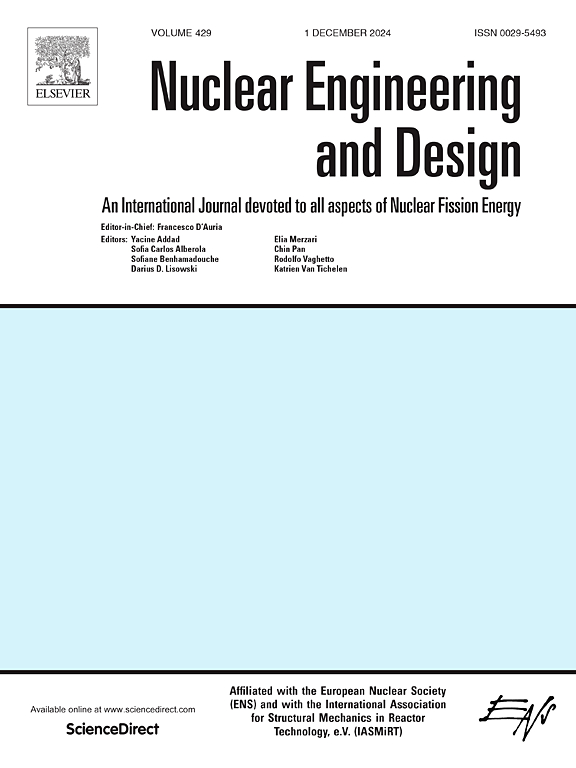Applications of deep reinforcement learning in nuclear energy: A review
IF 1.9
3区 工程技术
Q1 NUCLEAR SCIENCE & TECHNOLOGY
引用次数: 0
Abstract
In recent years, Deep reinforcement learning (DRL), as an important branch of artificial intelligence (AI), has been widely used in physics and engineering domains. It combines the perceptual advantages of deep learning (DL) and the decision-making advantages of reinforcement learning (RL), and is very suitable for solving the “perception-decision” problem with high-dimensional and nonlinear characteristics. In this paper, firstly, the algorithm principle, mainstream framework, characteristics and advantages of DRL are summarized. Secondly, the application research status of DRL in other energy fields is reviewed, which provides reference for the possible impact and future research direction in the field of nuclear energy. Thirdly, the main research directions of DRL in the field of nuclear energy are summarized and commented, and the application architecture and advantages of DRL are illustrated through specific application cases. Finally, the advantages, limitations and future development direction of DRL in the field of nuclear energy are discussed. The goal of this review is to provide an understanding of DRL capabilities along with state-of-the-art applications in nuclear energy to researchers wishing to address new problems with these methods.
深度强化学习在核能中的应用:综述
近年来,深度强化学习(DRL)作为人工智能(AI)的一个重要分支,在物理和工程领域得到了广泛应用。它结合了深度学习(DL)的感知优势和强化学习(RL)的决策优势,非常适合解决具有高维和非线性特征的 "感知-决策 "问题。本文首先总结了 DRL 的算法原理、主流框架、特点和优势。其次,回顾了 DRL 在其他能源领域的应用研究现状,为其在核能领域可能产生的影响和未来研究方向提供参考。第三,总结并评述了 DRL 在核能领域的主要研究方向,并通过具体应用案例说明了 DRL 的应用架构和优势。最后,讨论了 DRL 在核能领域的优势、局限性和未来发展方向。本综述的目的是让希望使用这些方法解决新问题的研究人员了解 DRL 的能力以及在核能领域的最新应用。
本文章由计算机程序翻译,如有差异,请以英文原文为准。
求助全文
约1分钟内获得全文
求助全文
来源期刊

Nuclear Engineering and Design
工程技术-核科学技术
CiteScore
3.40
自引率
11.80%
发文量
377
审稿时长
5 months
期刊介绍:
Nuclear Engineering and Design covers the wide range of disciplines involved in the engineering, design, safety and construction of nuclear fission reactors. The Editors welcome papers both on applied and innovative aspects and developments in nuclear science and technology.
Fundamentals of Reactor Design include:
• Thermal-Hydraulics and Core Physics
• Safety Analysis, Risk Assessment (PSA)
• Structural and Mechanical Engineering
• Materials Science
• Fuel Behavior and Design
• Structural Plant Design
• Engineering of Reactor Components
• Experiments
Aspects beyond fundamentals of Reactor Design covered:
• Accident Mitigation Measures
• Reactor Control Systems
• Licensing Issues
• Safeguard Engineering
• Economy of Plants
• Reprocessing / Waste Disposal
• Applications of Nuclear Energy
• Maintenance
• Decommissioning
Papers on new reactor ideas and developments (Generation IV reactors) such as inherently safe modular HTRs, High Performance LWRs/HWRs and LMFBs/GFR will be considered; Actinide Burners, Accelerator Driven Systems, Energy Amplifiers and other special designs of power and research reactors and their applications are also encouraged.
 求助内容:
求助内容: 应助结果提醒方式:
应助结果提醒方式:


